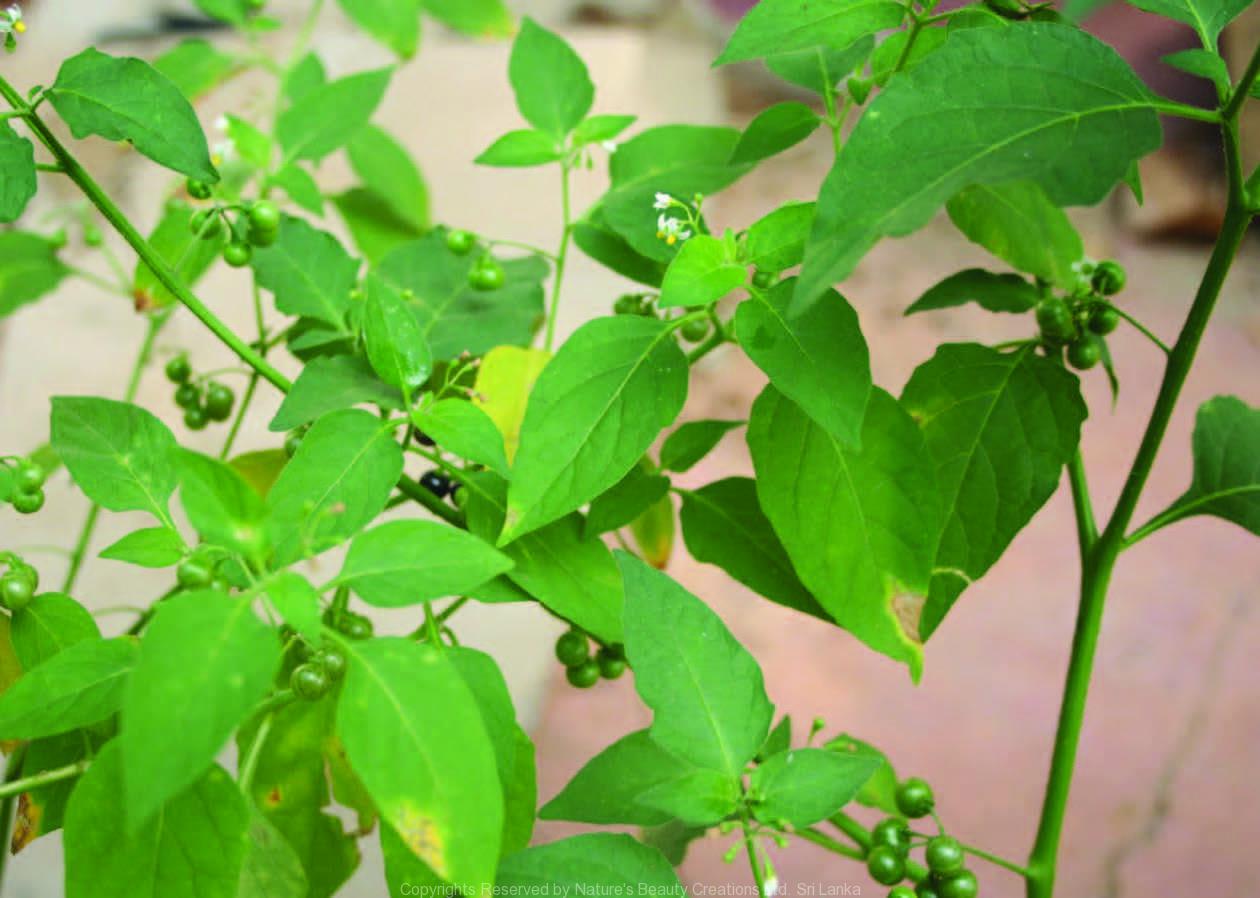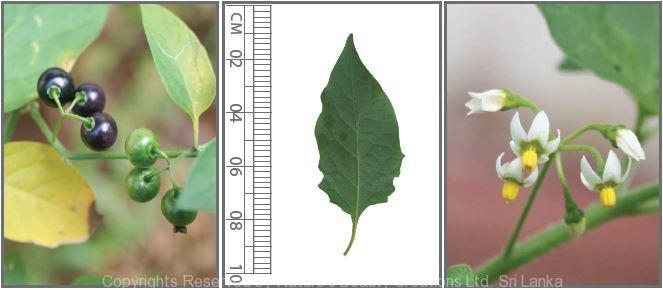

Traditional Knowledge
Useful plant parts :
Stem, fruit, shoot and leaf
Uses in traditional medicine :
- Leaves prepared as a vegetable are eaten by elders for joint pains
- Young stem sap is taken as a liver tonic
- Used in the treatment of headaches, ulcers and wounds
- Used as an antispasmodic, diaphoretic, emollient, diuretic, emetic and sedative
- Used as a poultice on gouty joints and rheumatism
- Used for piles, dropsy and enlargements of liver and spleen
- A decoction is used for sore eyes and skin diseases
- Popular remedy for inflammatory disease generally affecting the face (erysipelas)
Scientific Research
Chemical constituents:
Steroidal glycoalkaloids: α-solamargine, α-solasonine, chacotriose, disaccharides: α-D-oleandropyranoside from plant
Bioactivity :
Leaves: antioxidative, antibacterial; alcoholic extract of fruits: cancer chemopreventive, antiulcerogenic and ulcer healing properties
Clinical:
References : Chen, R. et al., (2009),Two novel oligosaccharides from Solanum nigrum, Carbohydrate Research, 344, 1775–1777. Edrizi, H. et al., (2011), In vitro evaluation of antimicrobial and antioxidant activities of some tunisian vegetables, South african journal of botany. Jainu, M. and Shyamala, D. C. (2006), Antiulcerogenic and ulcer healing effects of Solanum nigrum (L.) on experimental ulcer models: Possible mechanism for the inhibition of acid formation, Journal of Ethnopharma- cology, 104, 156–163. Jimoh, F.O. et al., (2010),Comparison of the nutritional value and biological activities of the acetone, methanol and water extracts of the leaves of Solanum nigrum and Leonotis leonorus, Food and Chemical Toxicology, 48, 964–971. Morillo, M. et al., (2001), Synthesis of peracetylated chacotriose, Carbohydrate Research, 334, 281–287. Son, Y. O. et al., (2003),Ripe fruits of Solanum nigrum L. inhibits cell growth and induces apoptosis in MCF-7 cells, Food and Chemical Toxicology, 41, 1421–1428.
Copyrights Reserved By
Natures Beauty Creations




